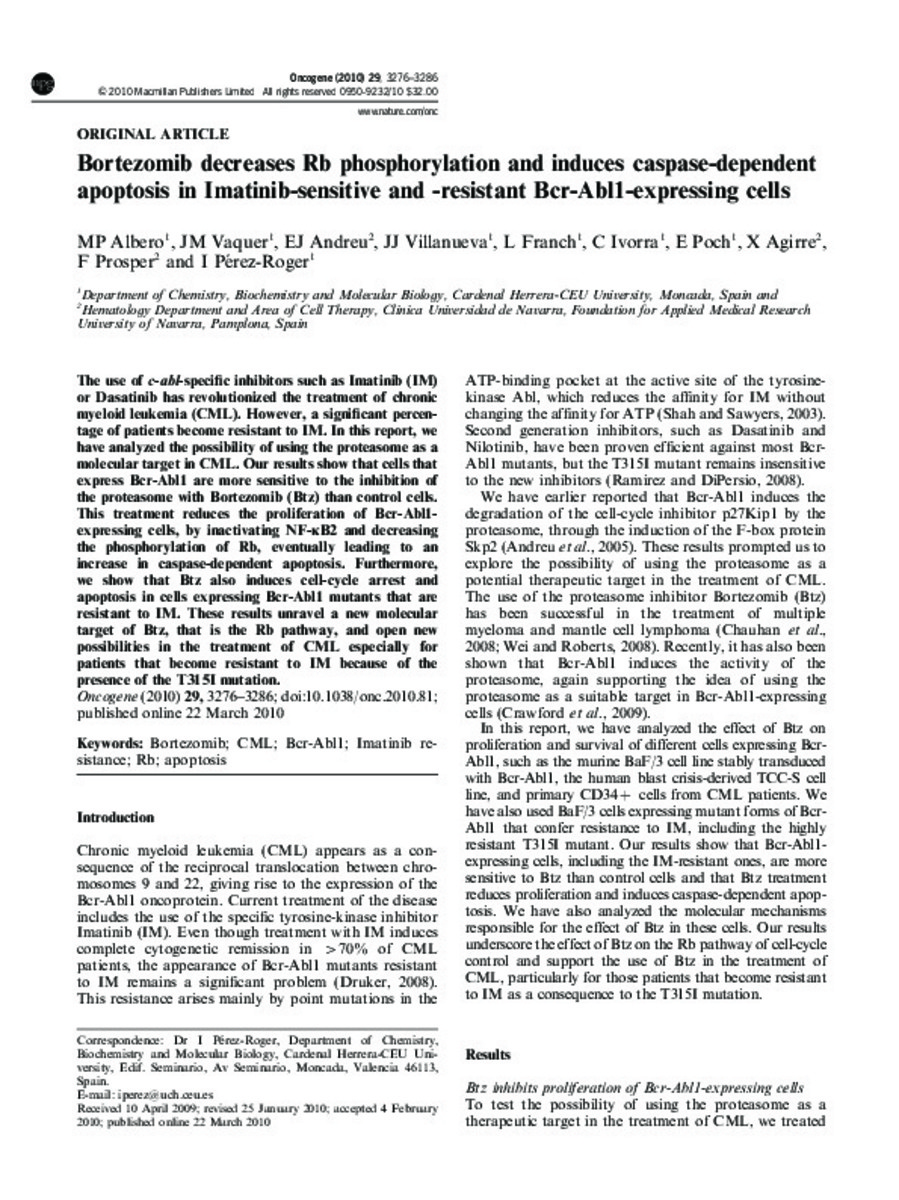Bortezomib decreases Rb phosphorylation and induces caspase-dependent apoptosis in Imatinib-sensitive and -resistant Bcr-Abl1-expressing cells
Keywords:
Bortezomib
CML
Bcr-Abl1
Imatinib resistance
Rb
Apoptosis
Publisher:
Nature Publishing Group
Citation:
Albero, M.P., Vaquer, J.M., Andreu, E.J., Villanueva, J.J. et al. Bortezomib decreases Rb phosphorylation and induces caspase-dependent apoptosis in Imatinib-sensitive and -resistant Bcr-Abl1-expressing cells. Oncogene 2010; 29: 3276–3286
Statistics and impact
0 citas en

0 citas en

Items in Dadun are protected by copyright, with all rights reserved, unless otherwise indicated.







